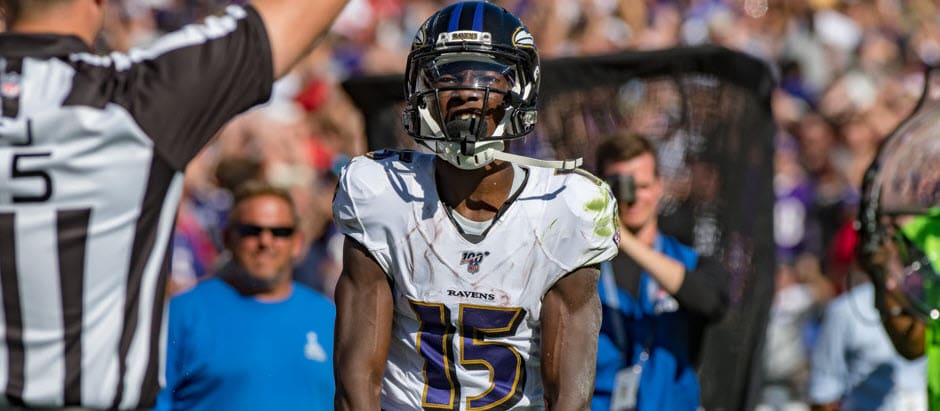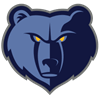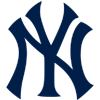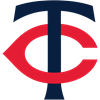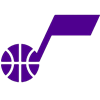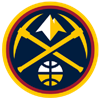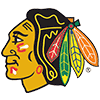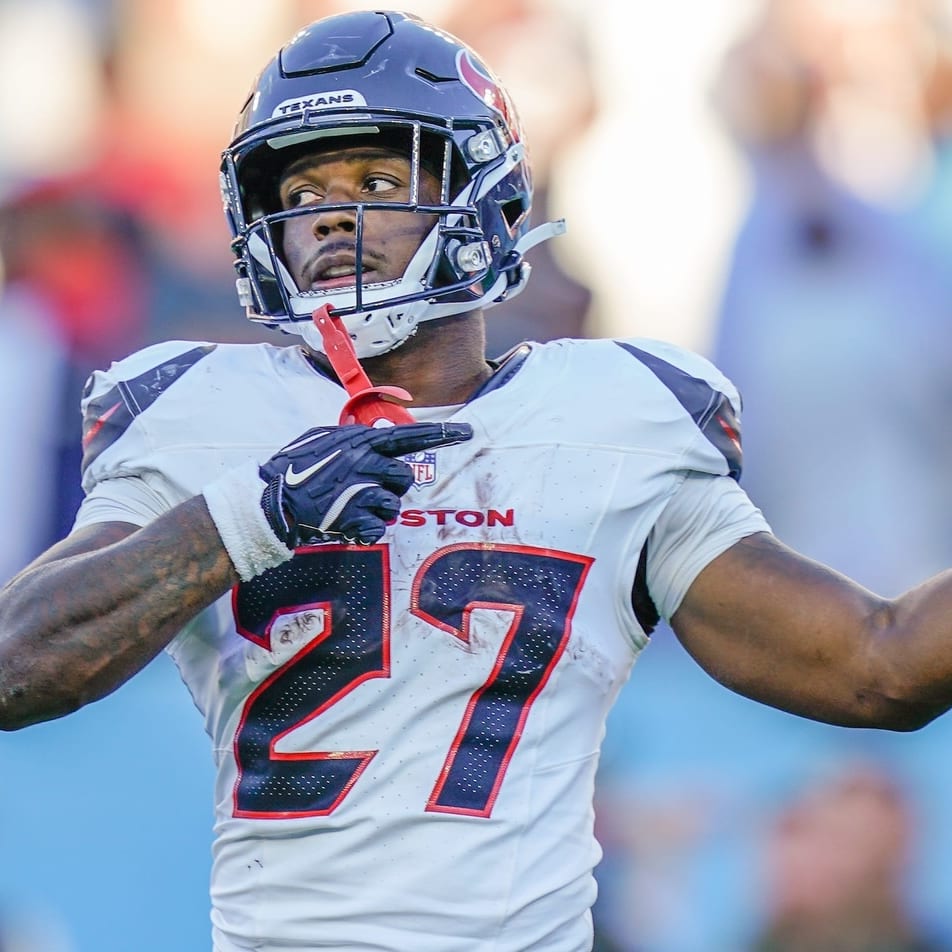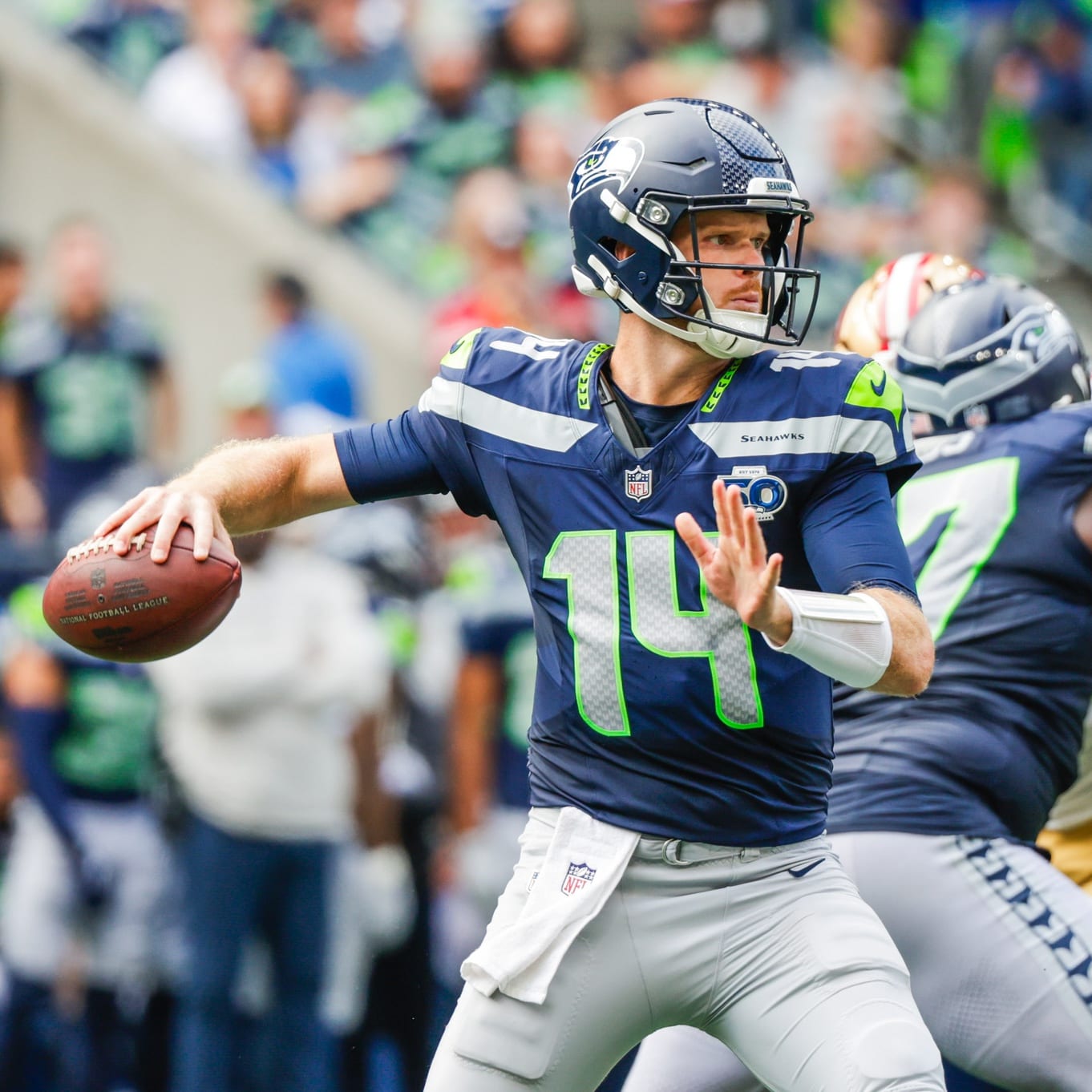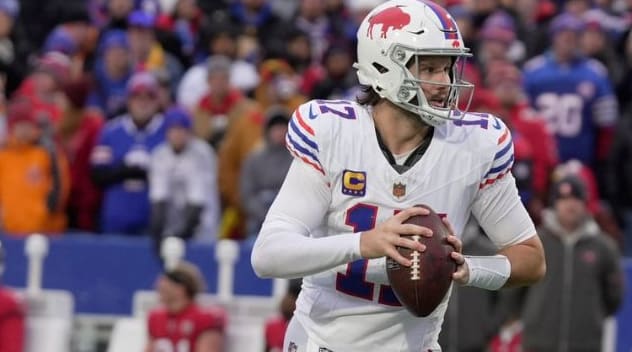I'm told there's a big football game taking place this upcoming weekend, but being the Ravens fan that I am, it's difficult to get excited about a matchup between the second- and third-best teams in the league. My newfound status as a diehard Seattle Dragons supporter does bring some excitement for the upcoming XFL campaign — for however many weeks it might last — but I have to admit my thoughts already have wandered ahead to 2020 NFL fantasy drafts.
As much as offseason transactions will alter the landscape, it's helpful to begin considering these things while the 2019 campaign is still fresh in mind. I've been writing up 'Breakout Players' in the Rotowire football magazine for a few years now, and my lousy hit percentage from this past summer suggests I need to be looking for every possible advantage. (I did much better in 2018, I promise!)
The Second-Year Leapers
QB Kyler Murray, 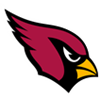 Arizona Cardinals
Arizona Cardinals
This one isn't all that exciting for fantasy purposes, with the expectation of a breakout likely to be fully baked into the draft price. We're headed for an interesting debate between Murray and Russell Wilson for QB5, behind Lamar Jackson, Patrick Mahomes, Deshaun Watson and Dak Prescott. My initial calculation points to Murray, who should have an advantage over Wilson in terms of both passing volume and rushing volume. (Granted, Wilson's edge in passing efficiency should remain sizable).
QB Daniel Jones, 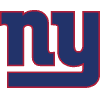 New York Giants
New York Giants
Here we get more upside relative to draft cost, but without the running ability and fast-paced offense that give Murray a solid floor. Jones could be a total crash-and-burn, or he might be for 2020 what Baker Mayfield was supposed to be for 2019. The Duke product was a fascinating mix of big plays and big mistakes as a rookie, averaging two passing touchdowns and 1.4 fumbles per start.
My optimism partially involves the expectation of a better situation in 2020, even if the new coaching staff is no better than the old one. Jones is part of an offense that doesn't lack for talent, a reality that may have been obscured by suspensions and injuries in 2019, when Saquon Barkley, Golden Tate, Sterling Shepard and Evan Engram combined for 22 absences.
A down season from left tackle Nate Solder didn't help, and while a rebound in 2020 is no sure thing, the Giants at least have plenty of cap space to pursue upgrades on center Jon Halapio and right tackle Mike Remmers. A large portion of that budget should go toward defensive players, but the Giants still figure to have most of their talent on offense, potentially creating a shootout-friendly roster.
RB Devin Singletary, 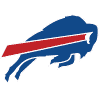 Buffalo Bills
Buffalo Bills
Singletary's rookie campaign was a huge success from the Bills' perspective, but four missed games and a lack of touchdown opportunities conspired to restrict him to RB2/3 status for fantasy purposes. Frank Gore went 2-for-11 inside the five-yard line, while Singletary was 1-for-2. Even if the Bills retain Gore or bring in another guy for short-yardage work, it's hard to imagine the split being so drastic in 2020.
Singletary had some issues with the stuff that often plagues rookies — four drops and a 52.7 pass-block grade from PFF — but he was an instant revelation on the ground. Among 45 qualified running backs, he placed fourth in yards per carry (5.1), 15th in yards after contact per carry (2.6), fifth in broken tackle rate (one for every 7.6 carries), 13th in rushing DVOA (3.8%) and ninth in PFF's elusive rating (69.6). I tried to find some measure of rushing efficiency or tackle avoidance that cast him in an unfavorable light, but I couldn't come up with anything.
Given that I'm already in the business of optimistic speculation, I also want to mention that the Bills have a boatload of cap space, which could be used to upgrade their solid-but-unspectacular offensive line. To be fair, a pessimist might note that the same cap space could be used on a better backup running back, who might then poach carries or targets from Singletary.
RB Miles Sanders, 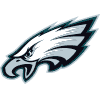 Philadelphia Eagles
Philadelphia Eagles
Sanders already had his breakout over the final two months of 2019, but I figured I'd mention him to preempt any "What about Miles Sanders?" comments. Consider me fully on board with a speedy, pass-catching running back who has the lead role in a Pederson/Wentz offense. A healthier year from the team's wide receivers should actually work in Sanders' favor, allowing for longer-sustained drives and more scoring opportunities.
David Montgomery, on the other hand, is intentionally omitted from this space. Mostly because he stinks, but also because Mitchell Trubisky stinks.
RB Tony Pollard,  Dallas Cowboys
Dallas Cowboys
Pollard is one Ezekiel Elliott injury away from a three-down role in a top-10 offense that has four high-level starters on the line. Zeke has been remarkably durable to this point in his career, but any running back with a large workload is a decent bet to get hurt in any given game/season.
WR Marquise Brown,  Baltimore Ravens
Baltimore Ravens
I'm a firm believer in disclosing bias, rather than pretending not to have it. In this case, it probably doesn't matter, because Brown will be a popular choice on 2020 breakout lists even if he sends a glitter bomb to every fantasy-football writer.
Rookie pass catchers that contribute in any meaningful capacity tend to have good careers, and Brown should get some extra credit for posting his 46-584-7 receiving line in the same calendar year as a Lisfranc surgery. He wasn't able to practice until July 31, and he was listed on the injury report more often than not, including two missed games and seven instances of playing through a 'questionable' tag.
Among the league's 79 wide receivers with 50 or more targets, Brown tied for 31st in yards per route (1.81, per PFF) and 18th in fantasy points per snap. The first number is of particular interest because PFF's Scott Barrett has shown that Yards Per Route is one of the few efficiency stats with a correlation to next-year fantasy success that approaches the correlations from volume stats.
Of course, this isn't one of the cases where we need to get too far into numbers to build an argument for the breakout. Hollywood is a recent first-round pick entering his age-23 season, playing with an MVP quarterback in an offense that doled out 1,201 combined snaps to Willie Snead and Seth Roberts in 2019.
It also doesn't hurt that Brown was one of the few Ravens to finish his year on a high note, with seven catches for 126 yards in the playoff loss to Tennessee. He's unlikely to ever become a 10-target-per-game workhorse, but seven per week should be fine for a receiver with this type of speed and ball-tracking ability, playing in an offense that frequently visits the end zone.
ONE-HANDED GRAB.
Marquise "Hollywood" Brown makes the highlight-reel grab.
(Via @Ravens) pic.twitter.com/4zpgVFxd8f
— USA TODAY NFL (@usatodaynfl) January 12, 2020
WR Deebo Samuel,  San Francisco 49ers
San Francisco 49ers
Samuel does a great job getting open and an even better job avoiding tackles, which explains how he produced 9.9 yards per target while committing nine drops on 81 passes in the regular season. After supplanting Emmanuel Sanders as the 49ers' top wide receiver late in the year, Samuel should be the No. 2 pass-game option in 2020 — behind George Kittle, of course — even if the team re-signs Manny or acquires a comparable veteran replacement.
Between his YAC ability and his involvement in the running game, Samuel is capable of WR2-type fantasy production with only six or seven targets per week. I just hope he doesn't explode in the Super Bowl, where a big game could pump up the 2020 draft/auction cost.
WR Mecole Hardman, 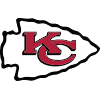 Kansas City Chiefs
Kansas City Chiefs
The Chiefs can free up $14 million in cap space if Sammy Watkins is cut, a move that seems obvious after Hardman flashed as a rookie. In addition to his top-notch work on special teams, the 21-year-old produced 20.7 yards per catch and 13.1 yards per target, with six touchdowns on just 41 targets. Hardman's 11.2 YAC average would've tied Dalvin Cook for the NFL lead if he had enough receptions to qualify, and the Georgia product committed just one drop along the way.
Hardman's route running may still be a work in progress as he enters his fourth season playing wide receiver, but the superb speed and YAC ability in a Mahomes/Reid offense could allow for WR2 production on WR4-type target volume. As is the case with Samuel, it doesn't hurt to get the occasional carry.
WR N'Keal Harry,  New England Patriots
New England Patriots
Harry spent the first 10 weeks of his rookie season on injured reserve and never managed to crack 30 yards in a game. As such, any breakout hype is largely built on draft status and team context, rather than his on-field performance from 2019. It was always a mistake to draft Harry ahead of Samuel, A.J. Brown and DK Metcalf, but that doesn't mean the ASU product should be left for dead.
Assuming Tom Brady sticks around for another season, the Patriots will have a wealth of talent and a shortage of cap space, perhaps forcing them to rely on Harry, Julian Edelman and some combination of draft picks and discount free agents. I'll also note that Harry is another guy who saw usage in the running game, with six carries for 56 yards over his final four appearances (including playoffs) of 2019. Meanwhile, Mohamed Sanu was a complete non-factor after Week 9, and the Patriots can create $6.5 million in cap space if he's cut this offseason.
WR Andy Isabella,  Arizona Cardinals
Arizona Cardinals
Breakout players tend to be guys who have already contributed in some meaningful fashion, but D.J. Chark just showed us that it need not be the case. Isabella joins Harry in hoping to be the next example, coming off a rookie season with nine catches for 189 yards and a touchdown on 13 targets (averaging just 10.5 offensive snaps in 15 games).
A fast-paced offense with mediocre tight ends offers potential for two or three wide receivers to enjoy productive fantasy seasons in Arizona, especially if the offensive line improves and Mr. Murray also takes a step forward. We already saw a glimpse of Isabella's explosiveness when he had an 88-yard touchdown and a 58-yard reception in back-to-back weeks midseason.
Andy Isabella is very, very fast. pic.twitter.com/CxTgP6ZsSw
— Arizona Cardinals (@AZCardinals) November 1, 2019
TE Noah Fant, 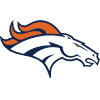 Denver Broncos
Denver Broncos
Fant turned in a solid rookie campaign at a position with a notoriously steep learning curve, producing a 40-562-3 receiving line on 66 targets, good for a 60.6 percent catch rate and 8.5 YPT. Like many of the other guys on this list, he struggled with drops (five) but made up for it with impressive YAC production (8.3 per catch, No. 1 among qualified TEs).
The 22-year-old should enter 2020 as the second or third option in Denver's passing game, likely seeing enough targets to turn in low-end TE1 production even if Drew Lock doesn't pan out. If Lock proves himself to be a franchise quarterback, Fant could push for the top-five at his position.
TE Josh Oliver,  Jacksonville Jaguars
Jacksonville Jaguars
Oliver is the first true "long shot" on this list, and while he doesn't necessarily merit a selection in 10- or 12-team redraft leagues, I'll happily acquire shares in dynasty and 20-round best ball formats. Hamstring and back injuries limited him to four appearances as a rookie, but that isn't necessarily the worst thing for a 22-year-old coming out of the Mountain West Conference with just one season of big-time collegiate production.
The Jags drafted Oliver in the third round for his physical tools, including 4.63 speed at 6-foot-5, 249 pounds. The team's tight cap situation will make it difficult to add considerable talent at tight end, potentially setting up a camp battle between Oliver and some combination of journeymen and rookies.
Additional Candidates: QB Drew Lock, QB Easton Stick, RB Damien Harris, RB Travis Homer, RB Darrell Henderson, WR Parris Campbell, TE T.J. Hockenson, TE Irv Smith Jr., TE Dawson Knox, TE Kahale Warring
The Post-Hype Sleepers
QB Baker Mayfield, 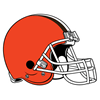 Cleveland Browns
Cleveland Browns
I don't know if we can really call Mayfield a "sleeper", considering he's one of those guys the national media has grabbed on to for everything-he-does-is-newsworthy status (Odell Beckham Jr. can relate!). Regardless, the acquisition price will be much cheaper than it was last year, partially because Mayfield didn't play well and partially because other quarterbacks emerged.
A new coaching staff and a healthier Beckham will help, and it doesn't hurt that the Browns have plenty of cap space to upgrade their mediocre offensive line. The team currently is projected for $50.7 million, with only three starters — all on defense — eligible to become unrestricted free agents. If nothing else, Cleveland should at least use one of its early draft picks on a blocker.
RB Kerryon Johnson, 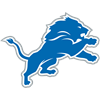 Detroit Lions
Detroit Lions
Johnson is now subject to the "injury prone" label, after spraining his left knee in 2018 and his right knee in 2019. This label, in most cases, is nothing more than a manifestation of the human desire to find patterns and explanations around every corner. It seems early to make a judgement one way or the other, especially given that Johnson played a dozen games in each of his three seasons at Auburn. Take the label-driven discount.
RB James Conner,  Pittsburgh Steelers
Pittsburgh Steelers
I suppose Conner would be a 'rebound' rather than a 'breakout', but I still want to mention him as a guy who will probably be undervalued. Much like teammate JuJu Smith-Schuster, the running back saw his 2019 campaign undone by a combination of his own injuries and Ben Roethlisberger's. With Jaylen Samuels and Benny Snell both struggling to take advantage, Conner should be locked in for the lead role in 2020. Plus, if we remove the two weeks when Conner was forced out early with an injury, he averaged 83.4 yards and 0.88 touchdowns per game — borderline RB1 production.
RB Damien Williams,  Kansas City Chiefs
Kansas City Chiefs
This one largely depends on the offseason ahead, as it isn't hard to imagine a scenario where the Chiefs use an early draft pick on running back. If not, it would be a sign of confidence in Williams, who recently has displayed tackle-breaking ability to go with his well-established receiving/blocking skills. He finished the regular season at No. 2 among qualified rushers in yards per carry after contact (3.2) and No. 3 in broken tackle rate (one for every 7.4 carries). I'm skeptical that he'll maintain such an impressive level of elusiveness long term, but it was at least a nice addition from a guy whose value mostly lies in team context rather than talent.
The only thing more impressive than Damien Williams breaking tackles for an 84-yard TD is Tyreek Hill catching up to him in the end zone.
(via @NFL)pic.twitter.com/62l7O8J88N
— Sunday Night Football (@SNFonNBC) December 29, 2019
WR Robby Anderson, 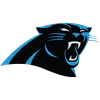 New York Jets ?
New York Jets ?
There was a breakout argument for Anderson each of the past three offseasons, and it actually kind of happened in 2017 before a Josh McCown injury torpedoed the beanpole's December. This breakout is largely contingent on the wideout leaving New York, where a new contract would stick him with slow-paced, slot-receiver-addicted Adam Gase for another year (or at least the first few weeks of the season).
WR Sterling Shepard,  New York Giants
New York Giants
Speaking of addicted, I can never seem to shake my Shepard habit, always finding one excuse or another to roster him in both DFS lineups and redraft leagues. This time it's going to be different, because he's playing with a promising young quarterback instead of Eli Manning's corpse or the rookie version of D-Dimes. Shepard quietly averaged 14.2 PPR points per game in 2019, with concussion symptoms and a lack of scoring chances holding him back from bigger things. He's shown the versatility to win on a variety of routes, playing inside or out as needed.
Additional Candidates: QB Jimmy Garoppolo, RB Kenyan Drake, RB Ronald Jones, RB Derrius Guice, WR Christian Kirk, WR Curtis Samuel, WR Dede Westbrook, TE O.J. Howard
The Best of the Rest
QB Sam Darnold, 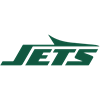 New York Jets
New York Jets
Darnold has been competent amidst difficult circumstances through his first two seasons, and while the coaching situation isn't likely to improve, he should at least have better blocking — and another year of experience under his belt — in 2020. The Jets placed 28th in PFF's offensive line grades for 2019, but they enter the offseason with $49.7 million in cap space and no premium free agents to re-sign. I don't think it's a bad thing that so many of their O-Line snaps from 2019 can become unrestricted free agents this offseason, and we should also remember that Darnold is entering his age-23 campaign.
RB Justin Jackson, 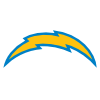 Los Angeles Chargers
Los Angeles Chargers
Jackson probably has the most Twitter followers of any third-string running back, standing out as one of the few athletes in any sport who is willing to publicly voice strong opinions on politics. The "stick to sports" crowd may permanently keep Jackson on their never-draft lists, but I'll be a happy investor if Melvin Gordon signs elsewhere and the Chargers don't use an early draft pick or large contract to find a replacement.
Listed at 6-foot, 199 pounds, Jackson looks a bit thin to handle a lead role, but he should do just fine in a timeshare with Austin Ekeler. The Northwestern product took 18 carries for 142 yards over the first three weeks of 2019, and he's averaged 5.1 yards on 79 carries through two pro seasons. Jackson also has shown glimpses of pass-catching ability, which would be vital if an Ekeler injury opened up a larger role.
WR Courtland Sutton  Denver Broncos + WR Calvin Ridley,
Denver Broncos + WR Calvin Ridley, 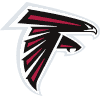 Atlanta Falcons
Atlanta Falcons
Both wide receivers were useful for fantasy teams in 2019 and should take another step forward in 2020. Sutton looks like the type of rare talent that can put up WR1 numbers even with poor quarterback play, so he could be a First-Team All-Pro if Drew Lock proves decent. Ridley doesn't quite have the same athleticism or ceiling, but he should be a solid WR2 for fantasy managers, likely operating as the No. 2 option in a high-volume, above-average-efficiency passing attack.
Additional Candidates: QB Ryan Tannehill, QB Derek Carr, RB Raheem Mostert, RB Duke Johnson (I'll never give up on this one), WR Tre'Quan Smith, WR Allen Lazard, TE Dallas Goedert, TE Mike Gesicki, TE Tyler Higbee


